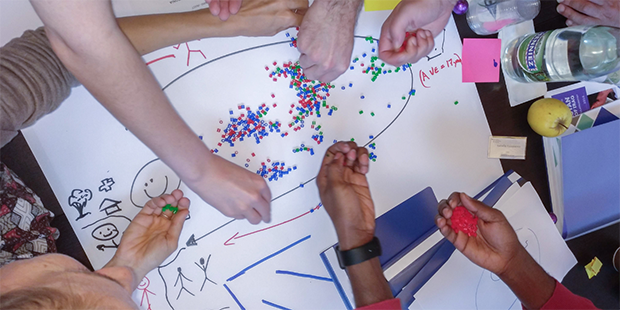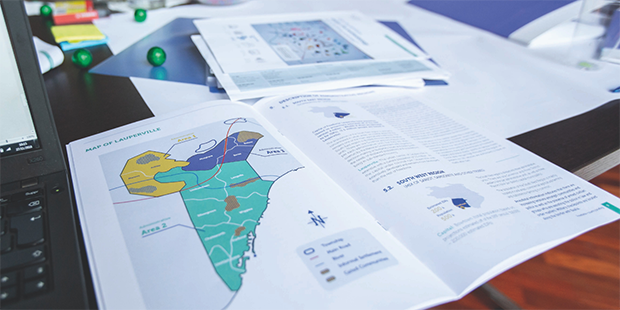This year’s edition of our flagship training on profiling brought together 28 participants from more than 20 countries to work on the profiling process from start to finish. It was an exciting 6 days hands-on training using our revised fictional country scenario Freedonia and concrete examples from our profiling experience over the last years. We also met brilliant colleagues who contributed valuable insights from their own various experiences working in national statistical offices, UN agencies as well as non-profit humanitarian and development organisations.
JIPS has worked hard over the summer and autumn to revise our training scenario and materials. In particular, we have put our heads together to rethink Freedonia. Read on about what’s new, and hear from four participants working in South Sudan and Honduras about their highlights from the training.

The fictional country scenario of Freedonia not only sets the stage for the PCT content and practical exercises, but it has also inspired and been integrated into many of our partners’ training courses, such as UNHCR’s TIME training, DRC’s flagship Protection training and others. However, we felt the scenario needed an update to reflect our displacement profiling experience over the last years, as well as to ensure that participants’ experience is close to the situations and challenges they might come across in real life. The new scenario thus includes:

This years’ training also included dedicated sessions focusing on three strategic areas we are working on:
By the way, if you wish to get a sneak peek into the new Freedonia or use it for your own trainings, get in touch!
Telling from participants’ reactions and feedback through our online survey, the effort put into enhancing the training through these new materials and thematic sessions was worth it. As Jonathan Mendoza (Data Management Associate with UNHCR Honduras) says,
“my expectations have been met: (…) the workshop was really dynamic and there was a lot of encouragement to participate. (I also) really enjoyed the opportunity to network with colleagues scattered around the world”.
Against the background of the current profiling exercise in the country, his highlight was the session on how to jointly analyse the data as well as achieve agreement on its interpretation. This, he says, will be greatly useful in the ongoing discussions with the government in Honduras, to help inform durable solutions and policy making on displacement. For Ali Abdelmajid (Bureau of Statistics Libya), the training was very relevant given the current displacement situation in Libya, and he aims to transfer the acquired knowledge to his staff in the Bureau of Statistics. For Halake Mohamud (Information Management Officer with UN OCHA South Sudan), the session on how to ensure broad buy-in was particularly valuable:
“I’ve learned how to bring together all the stakeholders to one table so they can gather around common objectives and also put on the table their various strengths and what they can contribute to a successful exercise – in terms of technical expertise, financial resources, providing security and safety.“
The training also helped him to better understand the differences between rural and urban contexts, as well as the added value of looking at both IDPs and host communities. Looking back at the six intense days of training, Sebastian Herwig (Protection Cluster State Coordinator at UNHCR South Sudan) mentions:
“These skills, if not applied in the classic profiling exercises that JIPS is doing, can be applied to a whole range of other assessments, such as area-based assessments, interagency assessments, etc.” We couldn’t agree more.
Listen in to our audio recordings of our conversations with Jonathan, Halake, Ali and Sebastian on our audio channel.